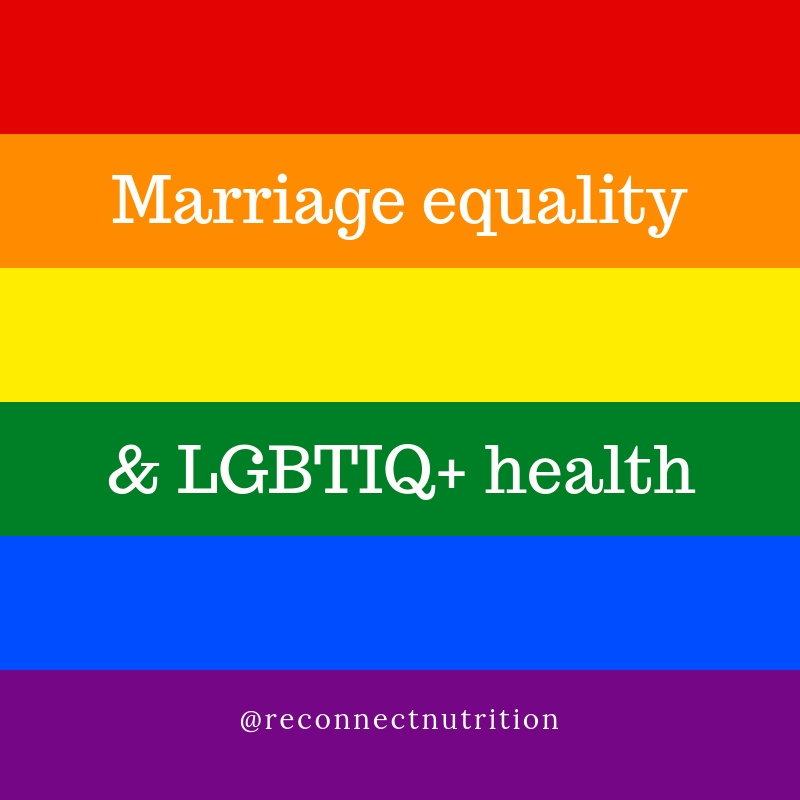
November 15th marks the anniversary of the day Australian’s voted ‘Yes” to marriage equality. It’s also the anniversary of the time I made a mechanic extremely uncomfortable by repeatedly bursting into tears in front of him while he fixed my car.
I cried when the result was announced, whenever I saw footage of people celebrating, and randomly out of relief, grief and exhaustion.
I’m not writing this as an apology to the mechanic. Those tears were incredibly cathartic. That day ranks among my top 5 most satisfying cries of all time.
Instead I want to talk about how the debate affected the health of the LGBTIQ+ community.
The months leading up to the result were tough for many of us. On one hand it was uplifting to see so many people working together to support our community. The atmosphere at the rallies I attended was optimistic and empowering.
However, the homophobia and transphobia from the ‘No’ campaign was unrelenting and difficult to escape. The arguments against marriage equality unfairly targeted the more vulnerable members of our community – queer kids, and trans and gender-diverse folx.
LGBTIQ+ health
Concerns about the potential harm the debate might cause were justified. A survey of the LGBTIQ+ community shows that:
- 80% found the debate considerably or extremely stressful
- 70% reported that the debate made them feel considerably or extremely anxious
- 80% hid these feelings from others and avoided social situations/other people at least some of the time as a way of coping
- People living in areas with more ‘No’ voters fared worse than those with in areas with greater support (2)
The debate confirmed what we already know – exposure to prejudice and discrimination can affect mental and physical health. The stress, anxiety, and depression that it can cause (minority stress) puts LGBTIQ+ people at increased risk of:
- disordered eating and eating disorders
- using alcohol and other drugs
- engaging in risky sexual behaviour
- self-harm
We all react differently to stress. Some people find that their appetite all but disappears. Other might use food to soothe emotions. There is absolutely nothing wrong with emotional eating. However, for some people it can be distressing and make them feel out of control around food. If your relationship with food changed during or after the debate and is causing you or the people around you concern there is help available.
Life after marriage equality
While the debate about marriage equality is largely over the push for equal rights for all members of the LGBTIQ+ community continues. Until the forced divorce requirement is removed as a barrier to married trans folx legally changing their sex in all states we haven’t quite achieved marriage equality yet.
Today I’ll be remembering the hard work of all the activists that made this possible. I’ll be cheering for the thousands of same-sex couples who have chosen to marry over the past year. I have truly loved seeing the photos that you’ve shared.
I’ll also be holding space for anyone sitting with uncomfortable emotions who doesn’t feel like celebrating. And I’ll be cuddling up with my dogs and watching a dodgy horror movie because I’ve found myself needing to prioritise self-care a little more this week. The debate was difficult. Regardless of how you’re feeling, you’re not alone. There is always help available if you need it. All you have to do is reach out.
Qlife | Headspace | LifeLine | Eating disorders
~ Tom